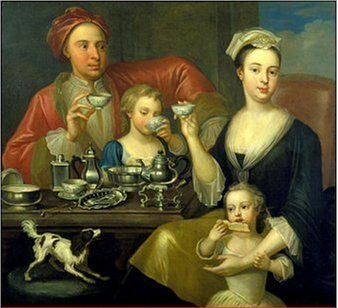Withdrawn Module: The World of Consumption, 1600-1800 (HI272)
 Please note that this module was available
Please note that this module was available
from 2011 to 2013, but has since been
withdrawn and is no longer available.
Tutors: Dr Felicia Gottman / Dr Hanna Hodacs / Dr Chris Nierstrasz
Imagine a world without tea, cotton, spices and sugar. The arrival of these new goods caused a sensation in early modern European society, to people dressed in woollen cloths, who ate salty food and drank beer. With new goods came new ways of socialising too, in coffee houses and in salons. Well-off men and women used the new goods to signal their status and identity, but gestures and practices were dispersed throughout society as e.g. sweet hot drinks became an everyday habit among broader social groups. Changing behaviours and luxury evoked strong reactions, they became associated with both moral debauchery and economic and social progress in contemporary debates. Meanwhile merchants were busy satisfying the growing demands; a global shipping and trading infrastructure extending over Asia and the Atlantic world evolved. The goods that arrived to the big ports of Europe were not only consumed, they triggered other processes as Europeans tried to refine and develop products that could replace those imported from faraway. In this respect the Consumer Revolution of the early modern period is linked to new economic and scientific thinking and ultimately to the Industrial Revolution of the modern period.
In other words the focal point of this undergraduate second-year option module, the new exotic goods arriving to the shores of early modern Europe, was a historical event with significant material, social, intellectual and economic repercussions. In that respect the new goods were both food for thought and something to consume, today as well as in the past! This module introduces students to the world of consumption in early modern Europe, and poses the question 'was this the birth of modern consumer society?'.
